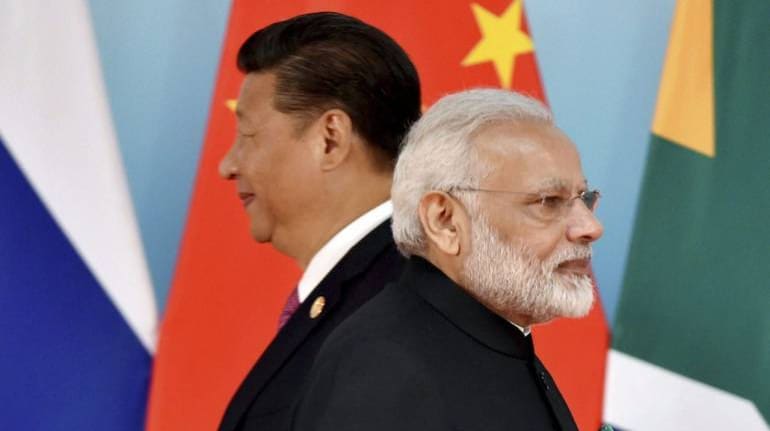
India’s ban on 59 Chinese applications or apps is more of an economic move than a political reaction to the military standoff in Ladakh.
"There are genuine apprehensions in India about how China would use all the information stored in apps like TikTok, which has 300 million downloads in India and use that information to assess consumer behaviour in this country,’’ says Srikanth Kondapalli, professor of Chinese Studies at JNU and one of India’s foremost Sinologists.
Tik Tok and some other Chinese apps, which had about 100-150 million downloads or so, store a lot of advertisements and backchannel communications. They would be a great source of information as far as the Chinese are concerned and so India’s security concerns, after what happened at Ladakh, should be considered legitimate, he said.
"It is interesting to note that the unequal balance of trade between the two countries has been triggered by Chinese reluctance to allow Indian companies from investing in their country, even while their own firms, particularly in the technology business are conducting business in India,” says Kondapalli, who has studied Chinese language at the Beijing Language and Culture University and was a Postdoctoral Researcher cum Visiting Fellow at the Peoples’ University, Beijing from 1996-1998.
China has entered the Indian market through venture investments in start-ups and penetrated the online ecosystem with its popular smartphones and their apps.
Chinese tech investors have put an estimated $4 billion into Indian start-ups and such is their success that over the five years ending March 2020, 18 of India’s 30 unicorns are now Chinese-funded.
TikTok’s 300 million subscribers have overtaken YouTube in India. Alibaba, Tencent and ByteDance rival the US penetration of Facebook, Amazon and Google in India. Chinese smartphones like Oppo and Xiaomi lead the Indian market with an estimated 72 percent share, leaving Samsung and Apple behind.
According to a recent Gateway House report on Chinese investments in India, there are three reasons for China’s tech depth in India.
First, there are no major Indian venture investors for start-ups. China has taken early advantage of this gap. Alibaba’s 2015 investment in 40% of Paytm, a digital payments platform, paid off barely a year later when in November 2016, India demonetised its large currency notes and simultaneously promoted a move to a cashless economy.
Paytm benefitted from Alibaba’s superior fintech experience, which it applied to India seamlessly, making it a dominant player. Second, China provides the patient capital needed to support the Indian start-ups, which like any other, are loss-making. The trade-off for market share is worthwhile. Third, for China, the huge Indian market has both retail and strategic value. Therefore, companies like Alibaba and Tencent have different considerations and horizons for their investments.
Kondapalli, who has published in the world’s leading news outlets, including Xinhua and China Daily, points out that no Indian company has been allowed to be listed at the Shanghai Stock Exchange, despite the best efforts of firms like Tata Consultancy Services to do so.
The trend is one of competition and not cooperation in other businesses as well. "There is no place China has not blocked India out. Take energy. ONGC has been kept out at multiple places: at Kazakhstan, Venezuela, Sudan, Nigeria, Angola and Iran, even though with the latter, it was also the question of American sanctions,” he points out.
At a Shanghai Cooperation Organisation (SCO) summit a few years ago, the Chinese defence minister had threatened to cut off the cables of all foreign companies operating in the South China Sea and India, whose 55 per cent trade passes though the route, staged a walkout along with other countries at this brazen display of aggression.
In January 2018, China objected to Vietnam's invitation to India to invest in the oil and natural gas sector in the disputed South China Sea, saying it is firmly opposed to infringement of its rights using development of bilateral ties as an 'excuse'.
In the case of South China Sea, India has not exercised its historical rights to the Sea, as China frequently does: the ancient Tamil Chola dynasty were the world’s leading ship farers and between the ninth century till the beginning of the 13th, the Chola fleet represented the zenith of ancient Indian sea power, trading frequently with China, among other countries in the region.
According to Kondapalli, China has refused to comply with WTO regulations on free trade that includes banking, telecom and intellectual property rights, among others. The only place where they have agreed to accommodate Indian interests are in agriculture.
Also Read: TikTok, now banned, had donated Rs 30 crore to PM CARES Fund
What could be China’s reaction, given the Indian ban on their apps? "I don’t see any significant Chinese reaction. There are about 200 Indian companies trading in Shanghai and it is likely that some restrictions may be placed on them. These include IT firms, iron and steel companies and automobiles. Infosys has brought a 50-acre piece of land in Shanghai,” he points out.
Could there be further Indian action against Chinese companies? Kondapalli believes it all boils down to what happens in Ladakh, where the top brass from the two militaries are discussing steps to disengage. "If the situation deteriorates, expect India to take further steps to ban Chinese companies,” he says.
Will the two countries go to war? The veteran Beijing observer believes that is the unlikeliest option, despite all the drum beating. "China is in a tricky position, post-Covid. If it loses soldiers in an engagement with India, its ambitions of world domination will go for a toss. For India too losing soldiers is not going to be easy, but it has 1962 at the back of its mind and that can act as a spur,” states Kondapalli.

Discover the latest business news, Sensex, and Nifty updates. Obtain Personal Finance insights, tax queries, and expert opinions on Moneycontrol or download the Moneycontrol App to stay updated!